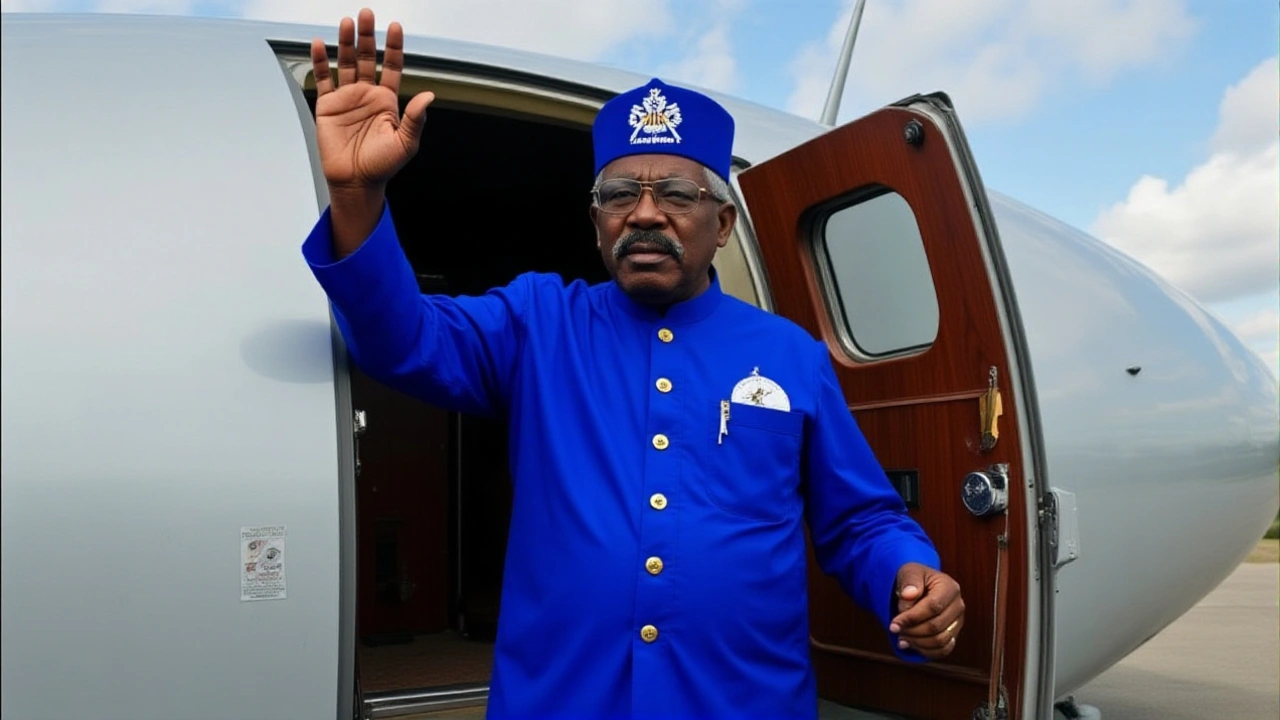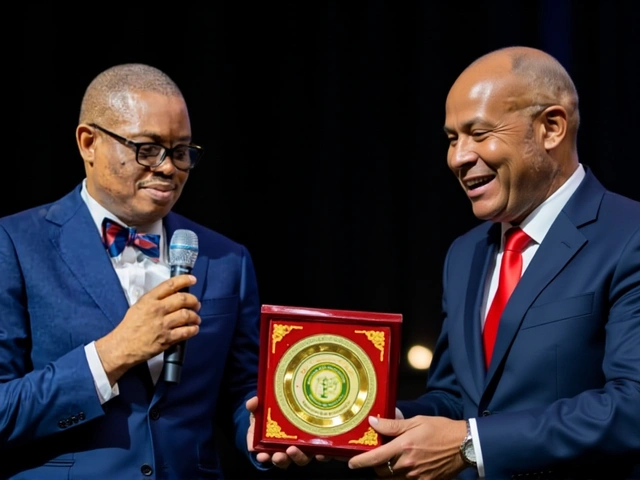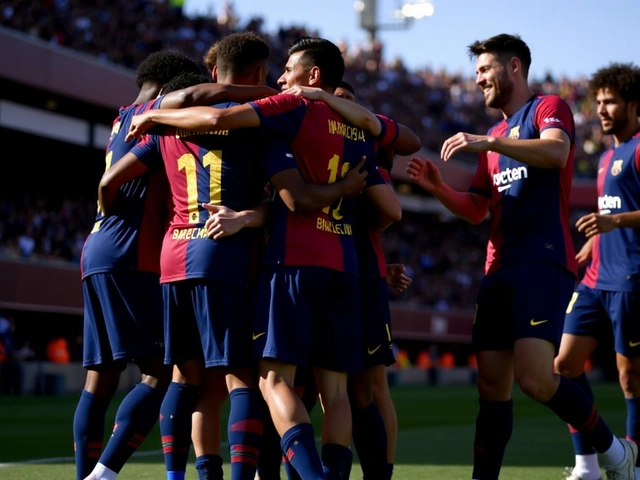When Bola Ahmed Tinubu decided to stay home instead of flying to Johannesburg, he didn’t just cancel a trip—he made a statement. On November 19, 2025, Nigeria’s president indefinitely postponed his attendance at the 20th G20 Summit Johannesburg and the 7th AU-EU Summit Luanda after armed gunmen abducted 24 schoolgirls from Government Girls Comprehensive Secondary School in Maga town, Kebbi State. The attack came just hours before dawn on November 18, 2025. Then, on the same day, bandits stormed the Christ Apostolic Church in Eruku, Kwara State, killing worshippers and leaving families in shock. Tinubu, who was scheduled to depart Abuja that Wednesday, stayed put. "The security breaches in Kebbi State and Monday’s attack... disturbed me," said Bayo Onanuga, his Special Adviser on Information, in a statement from the State House. This wasn’t just a logistical change. It was a moral pivot.
Why This Matters More Than Diplomacy
The 20th G20 Summit was set to be historic—the first time Africa hosted the gathering of the world’s 20 largest economies. Nigeria, as the continent’s most populous nation and economic powerhouse, stood to gain global visibility. But when 24 girls vanish from a classroom, when worshippers are gunned down in prayer, diplomacy feels hollow. Tinubu didn’t just delay his flight—he chose to sit in his office, surrounded by intelligence reports, while his vice president boarded a plane to represent him abroad. That decision speaks louder than any speech at the Johannesburg Expo Centre ever could.
The Immediate Response: A Nation in Motion
Within hours of the abduction, Tinubu moved with startling speed. He dispatched Vice President Kashim Shettima to Kebbi to meet grieving families and assess the terrain firsthand. Simultaneously, he ordered Bello Matawalle, the Minister of State for Defence, to relocate to Kebbi and take direct command of rescue operations. The Chief of Army Staff, Lt. Gen. Waidi Shaibu, didn’t wait for orders—he convened troops immediately, instructing them to launch "intelligence-driven operations and relentless day-and-night pursuit of the abductors," according to an army statement cited by TRT Afrika. Meanwhile, in Kwara State, police were ordered to hunt down the church attackers. Additional security forces were rushed to Ekiti Local Government Area after the state governor appealed for help.
More Than One Attack
This wasn’t an isolated incident. On November 15, 2025, just days before the school abduction, children were kidnapped from St. Mary’s School in Papiri, Niger State. The pattern is chilling: rural schools, isolated churches, quiet towns—targets of choice for armed gangs operating with near impunity across Nigeria’s northwest. The Kebbi and Kwara attacks are not anomalies. They’re symptoms of a systemic collapse in rural security. And for the first time in years, the president didn’t outsource the response.
Who’s Leading Abroad? And Why It Changes Everything
Kashim Shettima will now represent Nigeria at both summits—a rare moment where the vice president steps into the global spotlight. But this isn’t just about representation. It’s about signaling. Shettima carries not just Nigeria’s flag, but its shame. His presence at the G20 will be met with questions: "Why is the president not here?" The answer—24 girls missing, worshippers dead—will echo louder than any economic policy he presents. And here’s the twist: Shettima’s delegation will leave from Abuja on the same day Tinubu was meant to depart. The president didn’t just delay his trip—he made it clear: Nigeria’s first priority is not global prestige. It’s its children.
The Ripple Effect: Security, Trust, and the Next Generation
Parents in Kebbi are now keeping their daughters home. Schools in Niger, Kwara, and Zamfara are closing early. Teachers are quitting. The fear isn’t just about violence—it’s about abandonment. When the president cancels a trip to meet the world to focus on saving his own citizens, it rebuilds a sliver of trust. But the long-term damage? That’s harder to fix. Nigeria’s education system has lost over 1,200 students to kidnappings since 2020. The Government Girls Comprehensive Secondary School in Maga isn’t the first. It won’t be the last—unless the government stops treating this as a law enforcement problem and starts treating it as a national emergency.

What’s Next? The Clock Is Ticking
Tinubu has promised "everything possible" to bring the girls home. But what does that mean? Intelligence operations take time. Bandits move fast, often across porous borders into neighboring Niger. The Department of State Services is reportedly reviewing phone records and financial transactions linked to known kidnapping syndicates. Meanwhile, community leaders in Kebbi are organizing search parties with flashlights and radios. The president will remain in Abuja until he receives a comprehensive report from Shettima and the police. But the clock? It’s ticking in minutes, not days. If the girls aren’t found within 72 hours, experts say, their chances of survival drop sharply. The world may not be watching. But the mothers in Maga are.
Historical Context: A Pattern of Broken Promises
Nigeria has faced school kidnappings before. In 2014, Boko Haram abducted 276 girls from Chibok. The #BringBackOurGirls campaign went global. A few were rescued. Most weren’t. In 2021, over 300 students were taken from a school in Katsina. A ransom was paid. The children returned. But the perpetrators? Never caught. The cycle repeats: outrage, promises, slow response, silence. Tinubu’s decision to stay home feels different. Maybe because he’s the first president in a decade to visibly anchor himself to the crisis. Maybe because the victims are girls again—girls who were supposed to be safe in a classroom, not hiding in the bush. The difference this time? The world is watching. And so is he.
Frequently Asked Questions
How does this affect Nigerian families and schools?
Families across Nigeria’s northwest are now terrified to send children to school. In Kebbi, parents are keeping girls home, and many schools have suspended boarding. Since 2020, over 1,200 students have been kidnapped in similar attacks. The psychological toll is immense—teachers report increased anxiety and dropouts. The government’s failure to secure schools has eroded public trust in its ability to protect the most vulnerable.
Why didn’t Tinubu send someone else to handle the crisis while he attended the summits?
Because the scale of the crisis demands presidential authority. Past responses—like the 2021 Katsina kidnapping—were handled by security agencies without top-level oversight, and most abductors escaped justice. Tinubu’s decision to remain in Abuja signals he won’t outsource this. He’s personally directing intelligence operations, demanding daily briefings, and holding ministers accountable. This isn’t just about rescue—it’s about restoring credibility.
What’s the likelihood the abducted schoolgirls will be found?
Experts say the first 72 hours are critical. After that, ransom negotiations become more complex, and movement into remote border areas increases. In 2021, 21 girls from Kankara were rescued after 10 days. But many others—like the Chibok girls—remained missing for years. The military’s intelligence-driven approach is promising, but success depends on local informants and cross-border cooperation with Niger, where many kidnappers hide.
How does this impact Nigeria’s international reputation?
While Tinubu’s absence from the G20 may raise eyebrows, many global observers are interpreting it as moral leadership—not weakness. Countries like France and Germany have praised his prioritization of citizen safety over diplomacy. However, the long-term risk is that Nigeria’s image as a security failure persists. Investors and donors may hesitate unless concrete, lasting reforms follow this crisis.
What’s different this time compared to past school kidnappings?
This time, the president didn’t wait for public outcry—he acted immediately. He didn’t delegate the crisis to lower officials. He stayed in the country, directed operations personally, and made it clear this was his priority. Unlike in 2014 or 2021, there’s no silence from the State House. The media is saturated with updates. And for the first time, the government is publicly acknowledging the link between rural insecurity and national stability—not just as a crime issue, but as a governance failure.
What should Nigerians expect in the coming weeks?
Expect more military deployments in the northwest, especially around schools and churches. The government has pledged to review the structure of local security forces and increase funding for community intelligence networks. But without sustained political will, these measures may fade. The real test won’t be the rescue of the 24 girls—it’ll be whether the government prevents the next abduction before the year ends.






15 Comments
Vaneet Goyal
November 25, 2025 AT 07:46 AMThe president staying home wasn't a gesture-it was a necessary recalibration. When your own children are being taken from classrooms, no summit, no photo-op, no diplomatic prestige matters. This is the first time in a decade the leadership didn't outsource moral responsibility.
Amita Sinha
November 25, 2025 AT 21:47 PMOMG this is literally the only thing he’s done right since taking office 😭 I mean, I’ve been crying all day. Like, 24 girls? In 2025? How is this still happening?? I’m so emotionally drained. Someone please fix this. I can’t even sleep.
Bhavesh Makwana
November 26, 2025 AT 22:48 PMThere’s something deeply human about a leader choosing presence over performance. We’ve been conditioned to equate leadership with visibility abroad-but real leadership is sitting in the room when the weight of the nation presses down. Tinubu’s decision doesn’t solve the crisis, but it restores the idea that leadership has a conscience.
Vidushi Wahal
November 28, 2025 AT 04:15 AMIt’s quiet in the northwest now. Not peaceful. Quiet. Like everyone’s holding their breath. I hope they find the girls. I hope they don’t forget about the church victims too. This isn’t just about one school. It’s about every place that’s supposed to be safe and isn’t.
Surbhi Kanda
November 28, 2025 AT 10:23 AMStrategically, this is a masterclass in crisis signaling. By anchoring himself domestically, Tinubu is repositioning Nigeria’s security architecture from reactive law enforcement to proactive statecraft. The delegation of VP Shettima to multilateral forums serves as a calibrated diplomatic buffer while internal operational command remains centralized under presidential authority. This is not mere symbolism-it’s institutional recalibration.
Sandhiya Ravi
November 28, 2025 AT 21:55 PMI just want to say thank you to the mothers in Maga. You’re the real heroes. No one else is holding space for your grief like you are. Keep going. We see you. We’re with you. Even if the world moves on, we won’t forget.
JAYESH KOTADIYA
November 30, 2025 AT 15:37 PMFinally someone in power who gets it! 🇳🇬💪 Africa ain’t here to play nice with Europe and the US while our kids get snatched. We don’t need G20 applause-we need bullets on the ground. Tinubu’s not weak-he’s woke. Let the West talk about climate change while our girls vanish. We’re done.
Vikash Kumar
December 2, 2025 AT 12:19 PMHe waited too long. Always does. This is just PR. They’ll find the girls in 2 weeks and he’ll fly to Johannesburg like nothing happened. History repeats. We’ve seen this movie before.
Siddharth Gupta
December 4, 2025 AT 05:13 AMThere’s a quiet power in choosing to stay. Like a father who drops everything when his child screams in the night. No cameras. No speeches. Just presence. Maybe this is the first time Nigeria’s leader remembered he’s not a CEO-he’s a guardian. I’m not sure if it’ll fix anything… but for once, it feels like someone cares enough to sit in the dark with us.
Anoop Singh
December 4, 2025 AT 13:00 PMWait why is everyone acting like this is some heroic move? He’s only staying because the media’s on fire. What about the 500 other kids kidnapped last year? Where was he then? He’s not saving anyone-he’s saving his image. And don’t even get me started on how the army’s been failing for years. This is all theater.
Omkar Salunkhe
December 5, 2025 AT 05:21 AMtinubu didnt cancel the trips he just delayed them. also the girls were taken in kebbi not kwara. and the church attack was monday not same day. also why is everyone ignoring that the bandits are funded by foreign actors? this is all a distraction. the real issue is the IMF policies from 2022. nobody talks about that.
Rajendra Gomtiwal
December 7, 2025 AT 05:14 AMFinally a Nigerian leader with backbone. We’ve been begging for this for years. The G20 can wait. Our children can’t. This is what true patriotism looks like. Not waving flags at UN meetings-staying home when your people need you.
Yogesh Popere
December 7, 2025 AT 05:52 AMWho cares about his image? The girls are still gone. And now the whole country’s acting like this is some big moment. What’s next? A tweet? A press conference? We need soldiers on the ground yesterday. Not speeches.
Manoj Rao
December 9, 2025 AT 03:47 AMLet me be clear: this isn’t leadership-it’s a calculated move by a regime that knows the world is watching. The abduction was orchestrated to force his hand. The timing? Suspicious. The churches? A decoy. The real agenda? To justify military expansion under the guise of national emergency. Look at the defense budget increases since 2023. This is a power play disguised as morality.
Alok Kumar Sharma
December 10, 2025 AT 00:53 AMTypical. Everyone praises him for doing the bare minimum. He didn’t save anyone. He just didn’t leave. The military failed. The police failed. The intelligence failed. And now we’re giving him a standing ovation for not going on vacation. Pathetic.